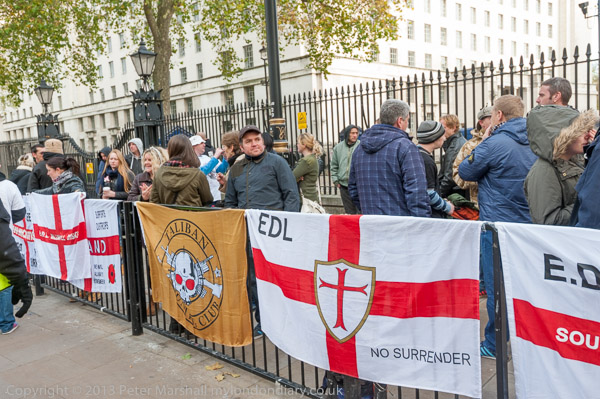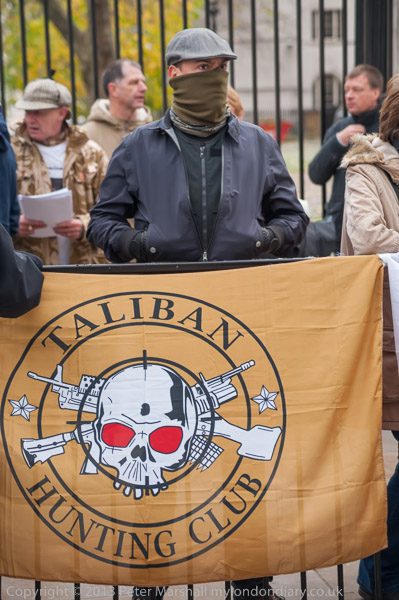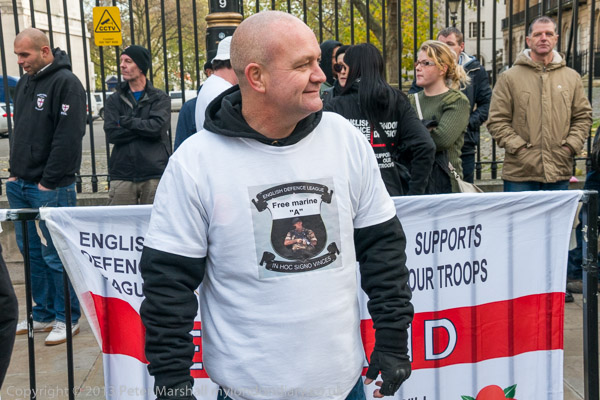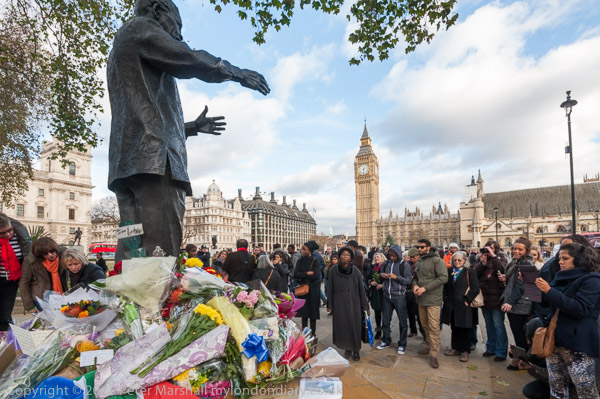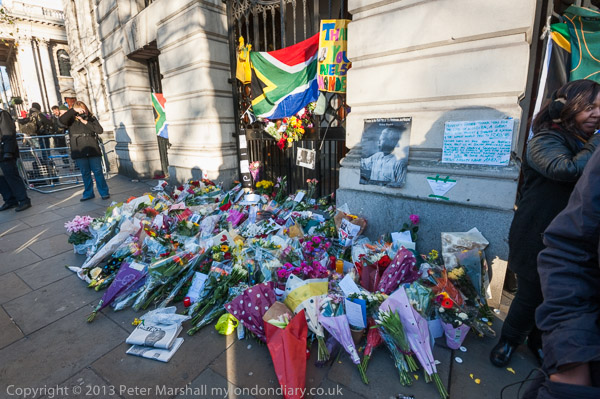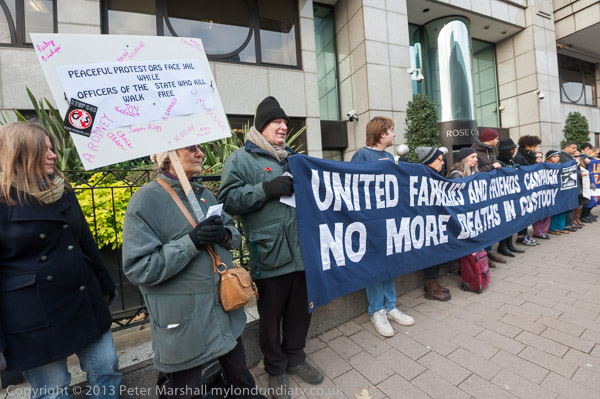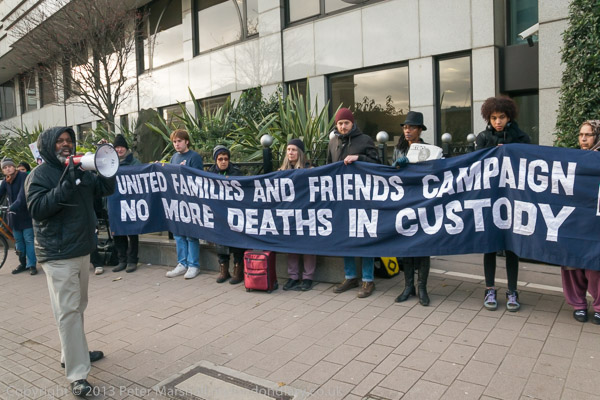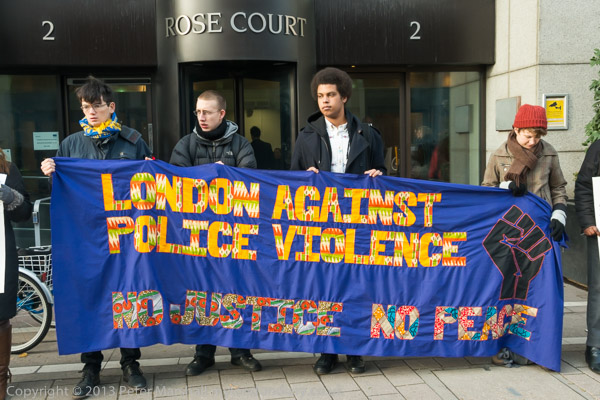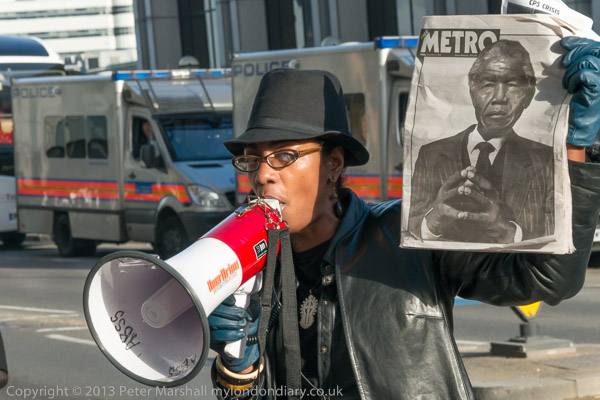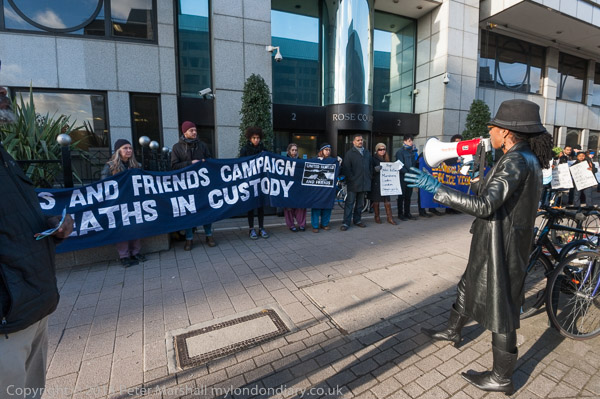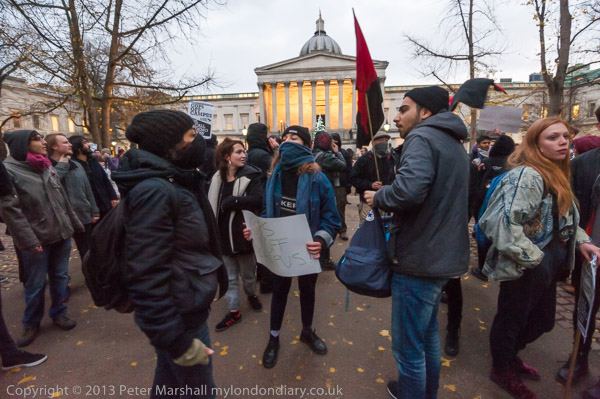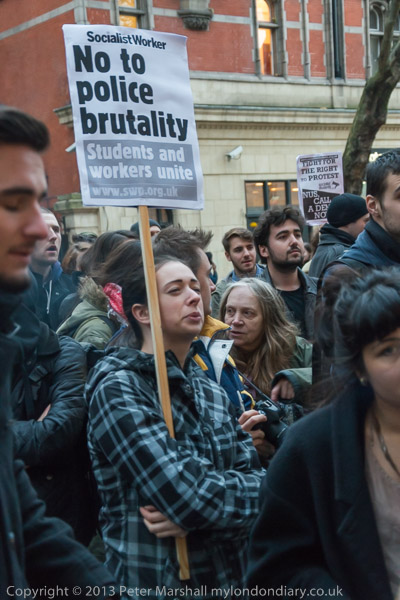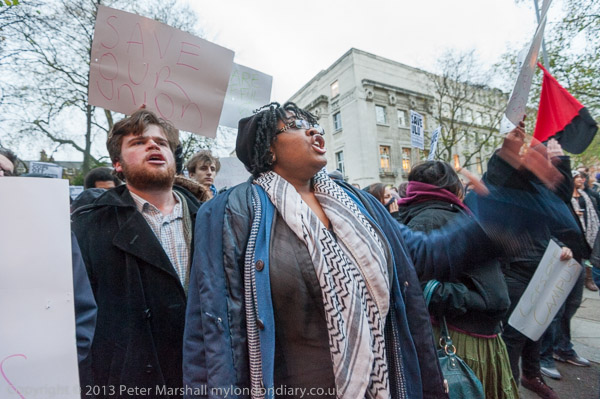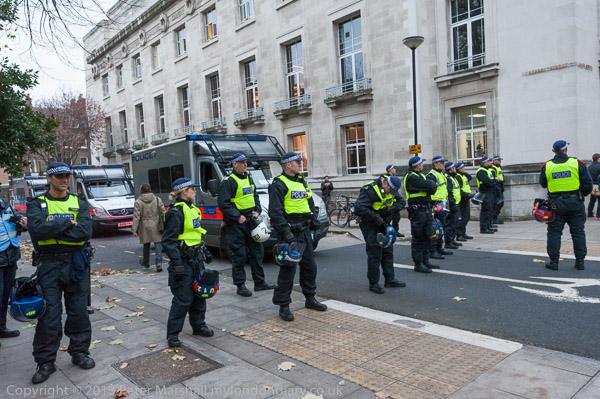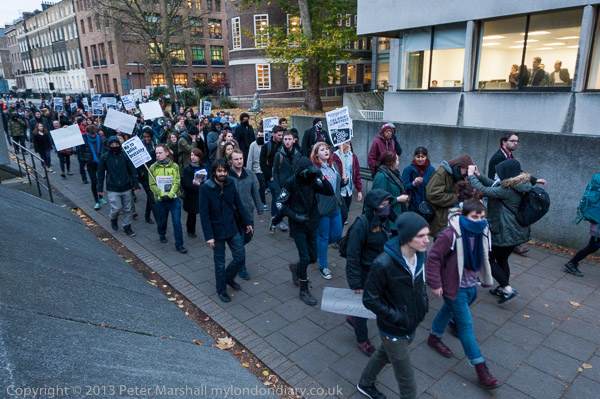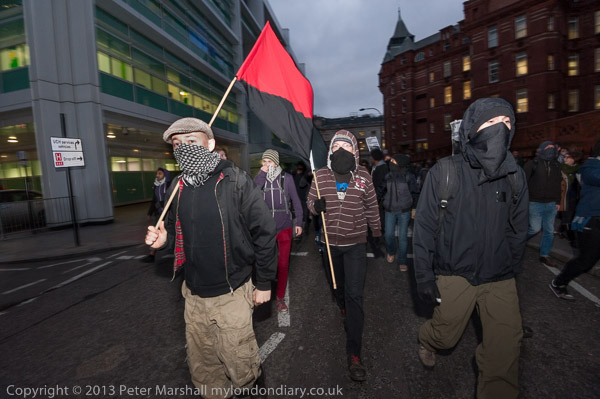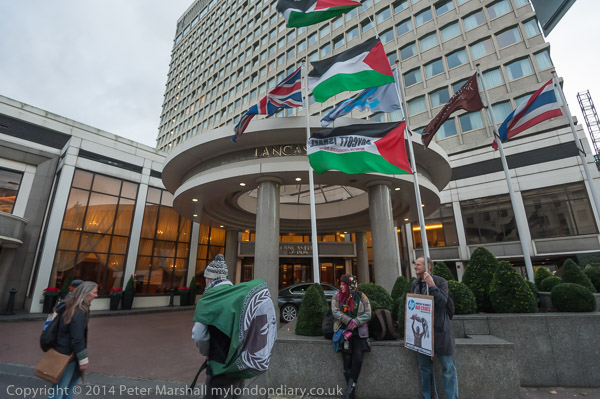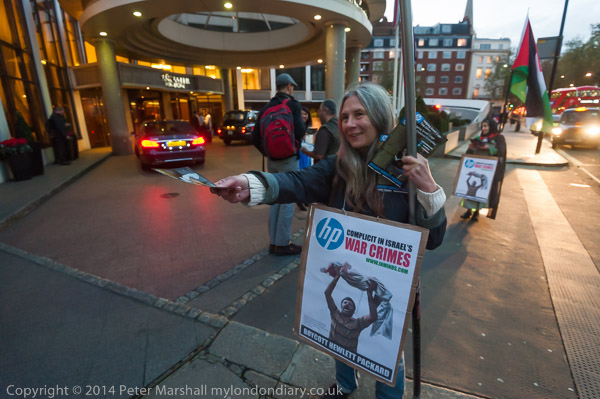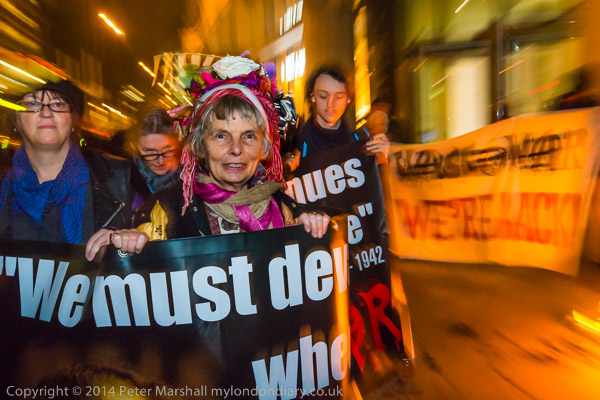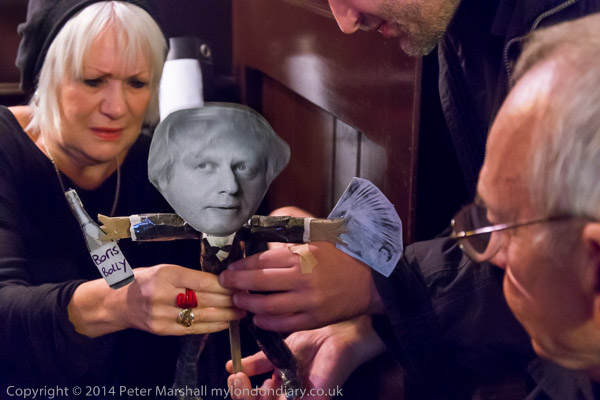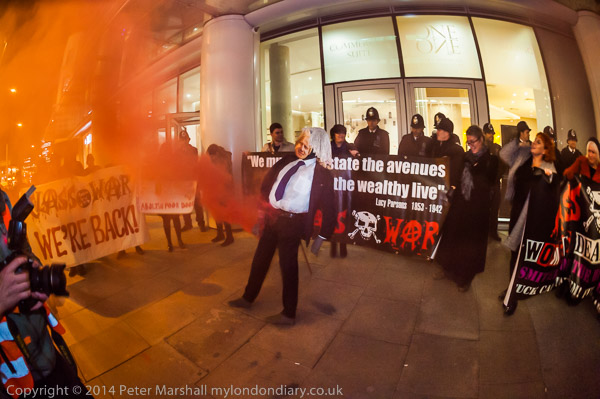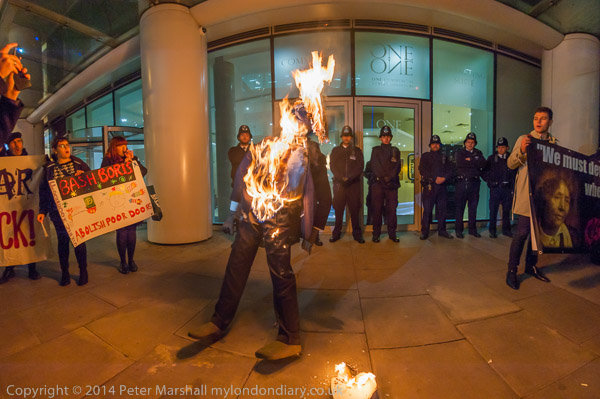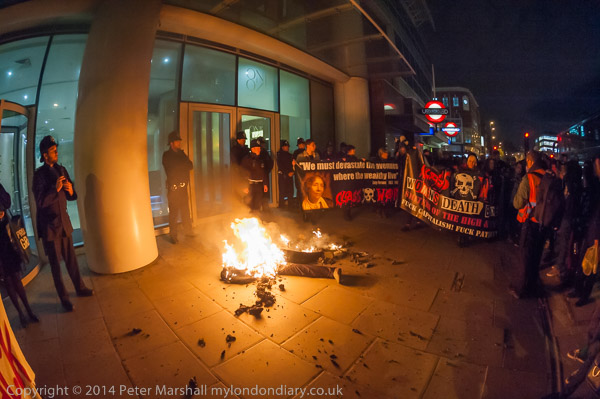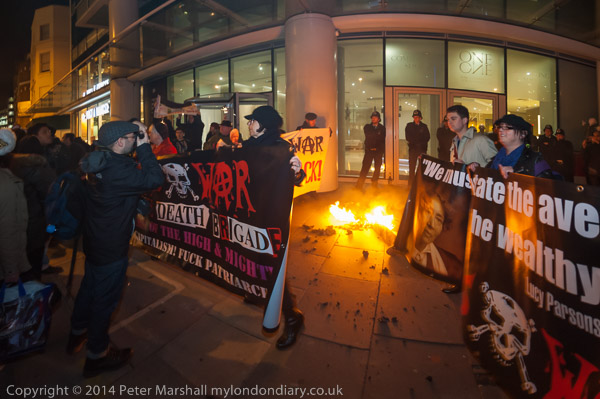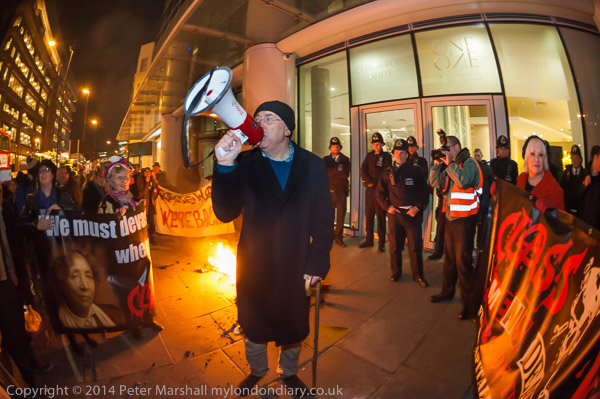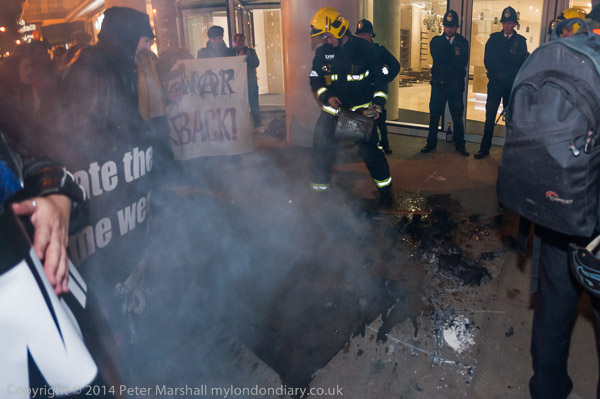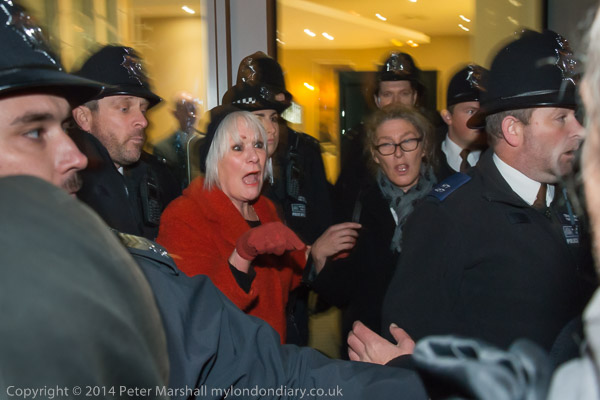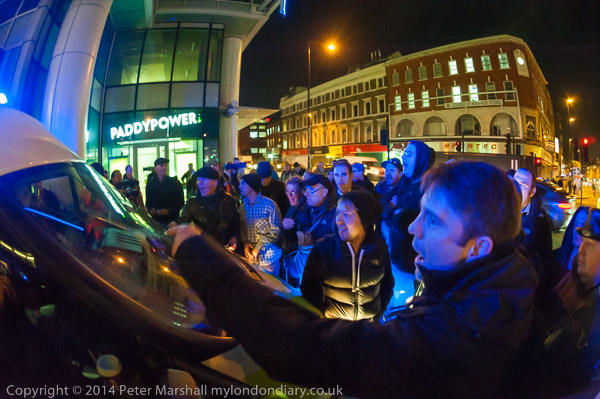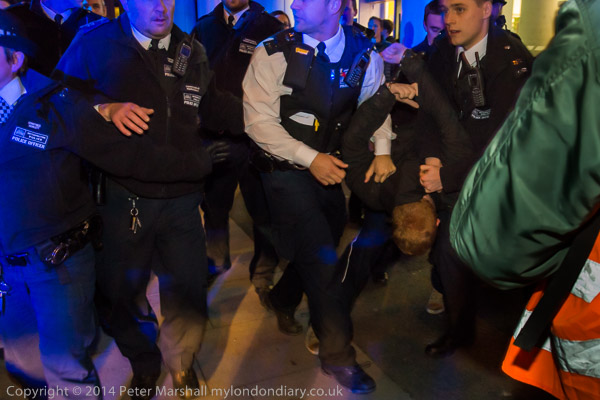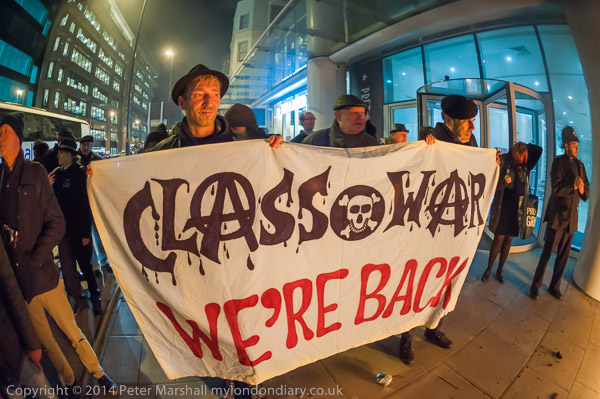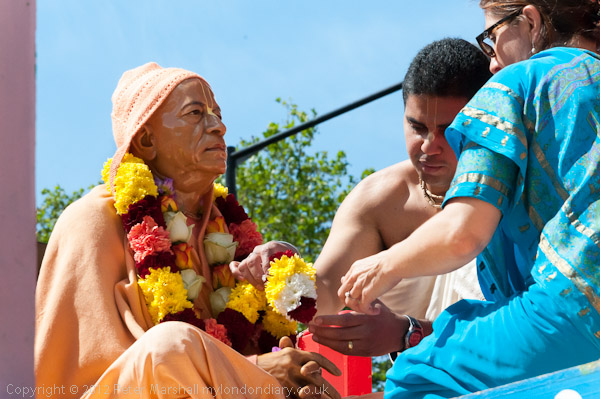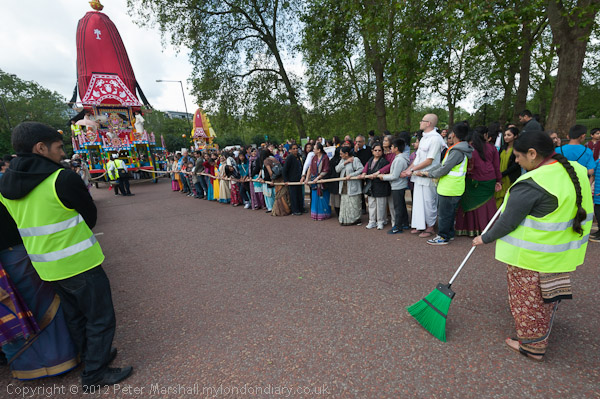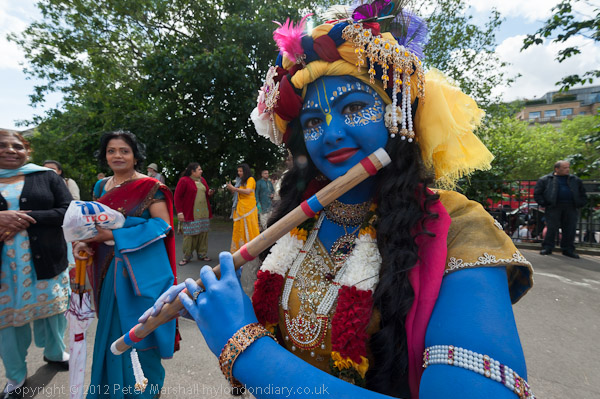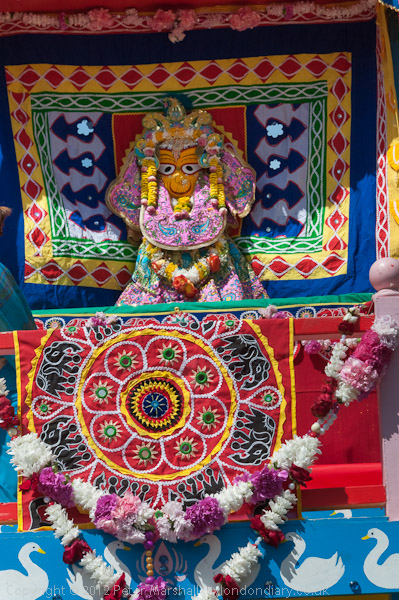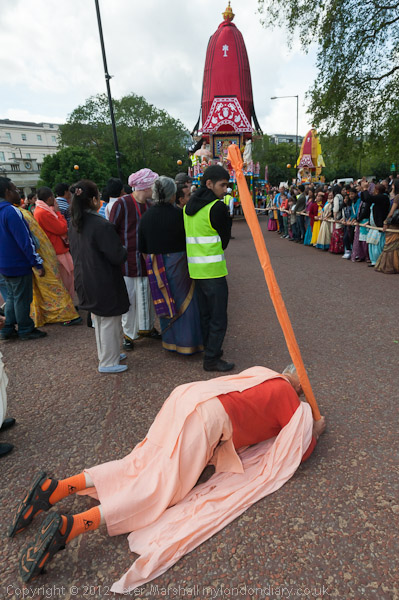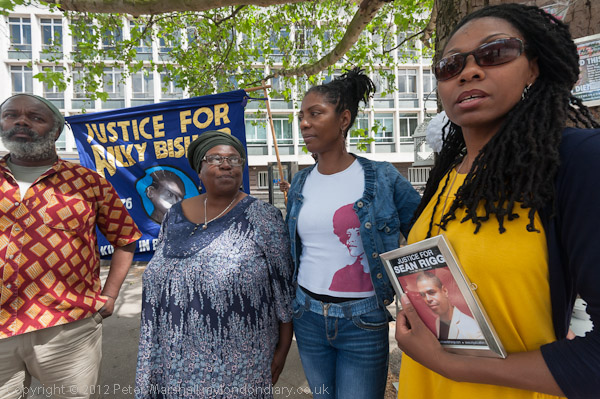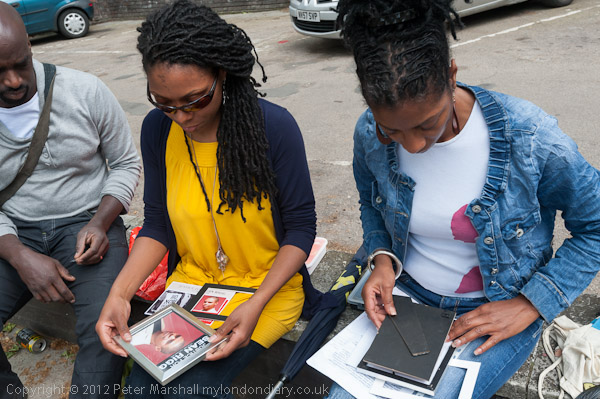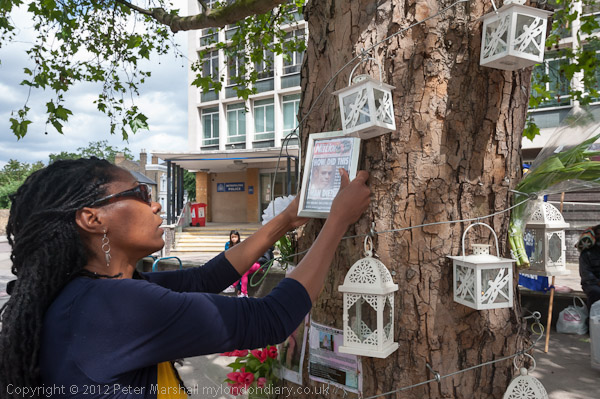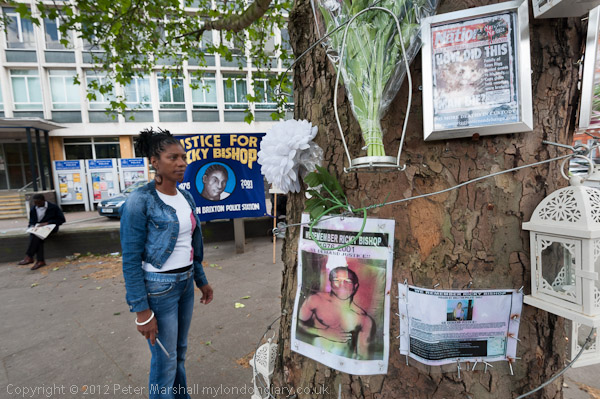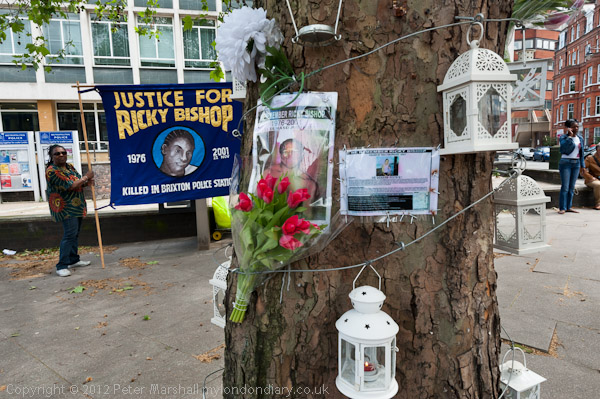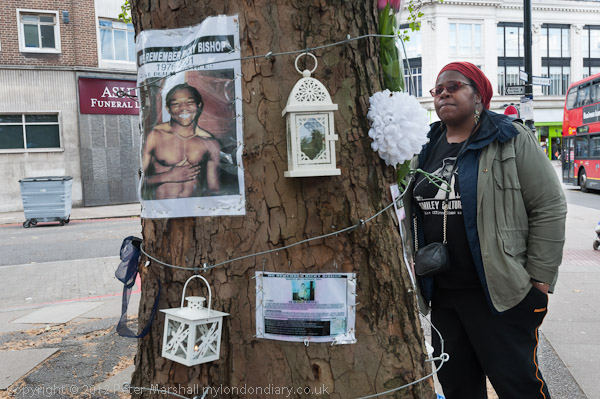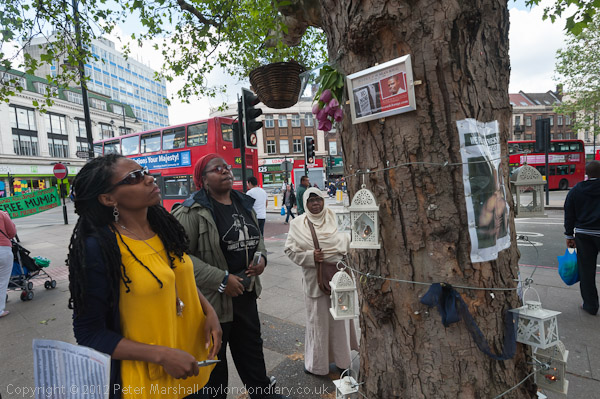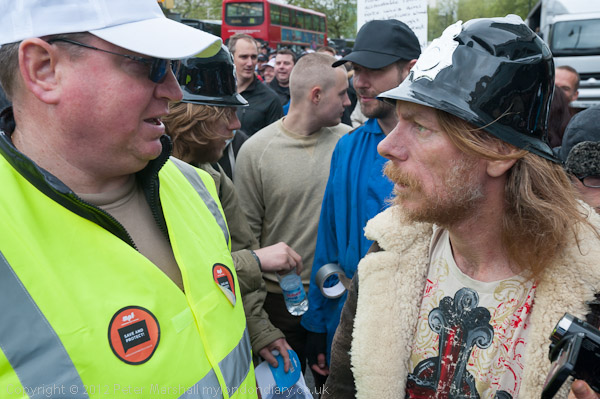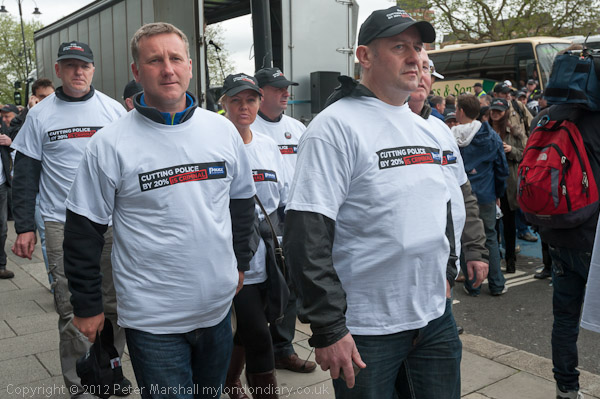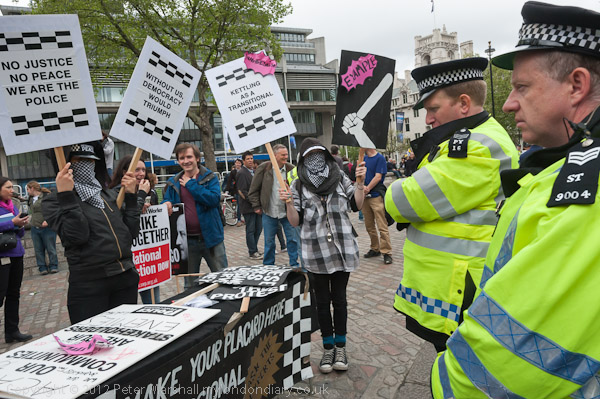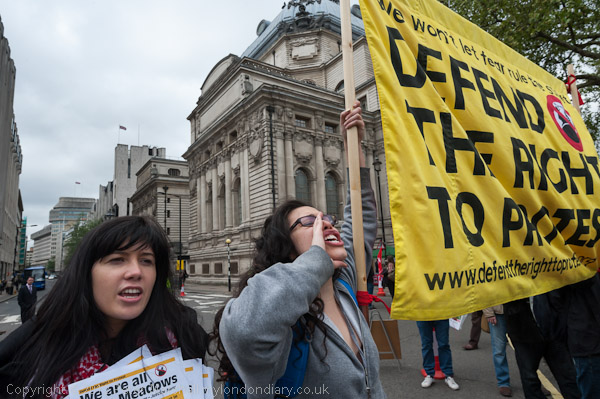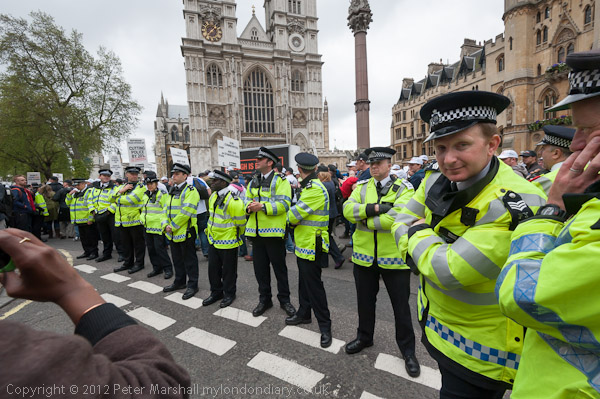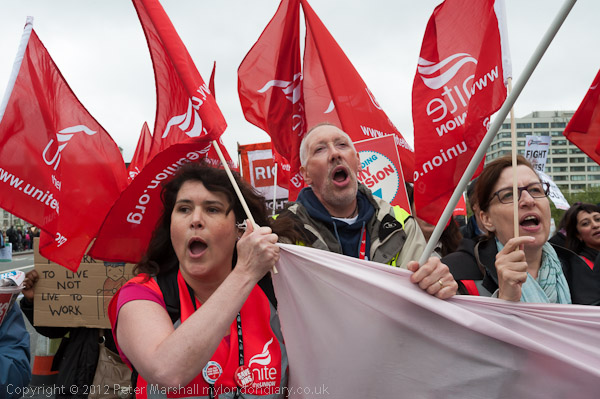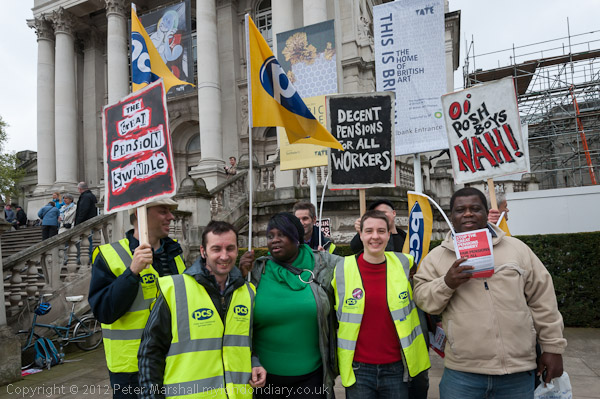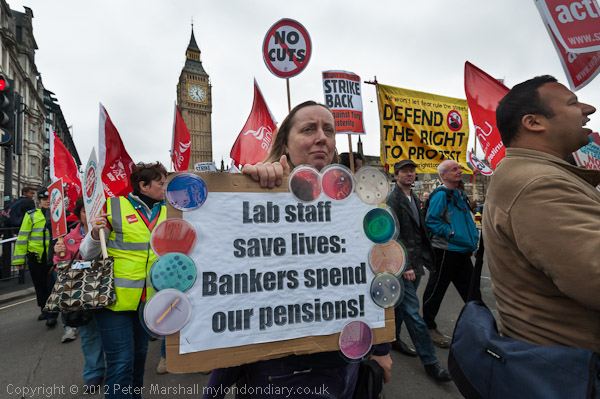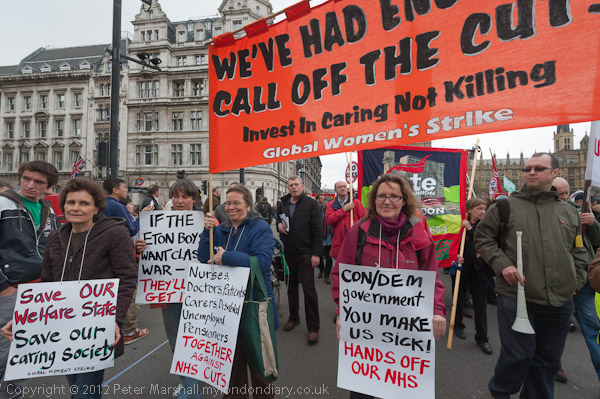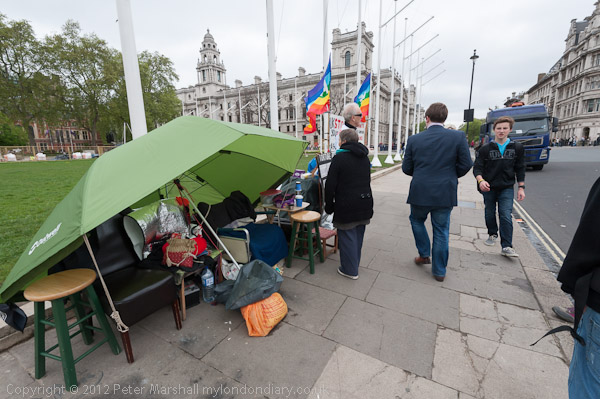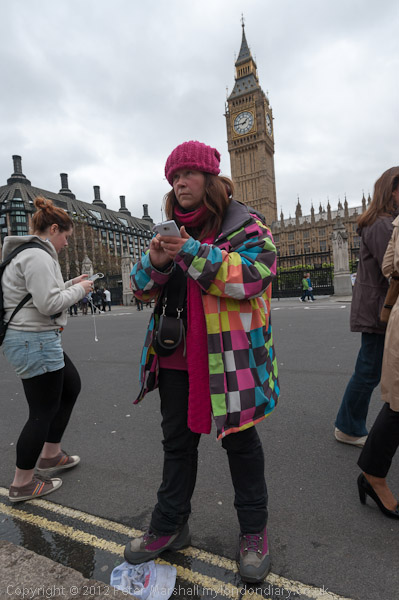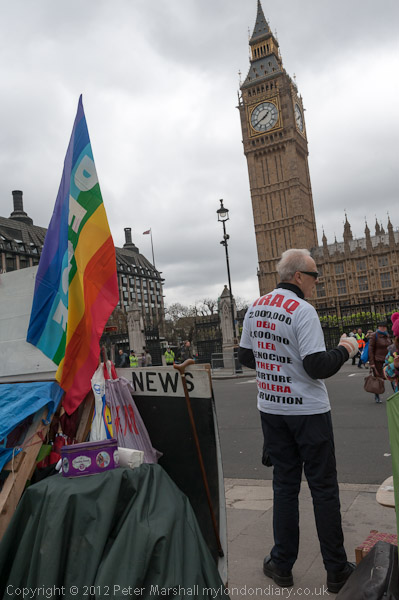Police Protest & Lay Wreaths: On Wednesday January 23rd 2008 around 20,000 police marched through London to demand more pay. As ‘crown servants’ rather than employees they are not allowed to take strike action or work to rule or any other collective action, but apparently organising a demonstration like this doesn’t count. As a part of their protest police officers and families of officers laid wreaths in a dignified ceremony at the National Police Memorial. I photographed the events and wrote about them in some length on My London Diary back in 2008, and here I’ll post that again – with some minor corrections, mainly of typos.
Police March for More Pay
Westminster
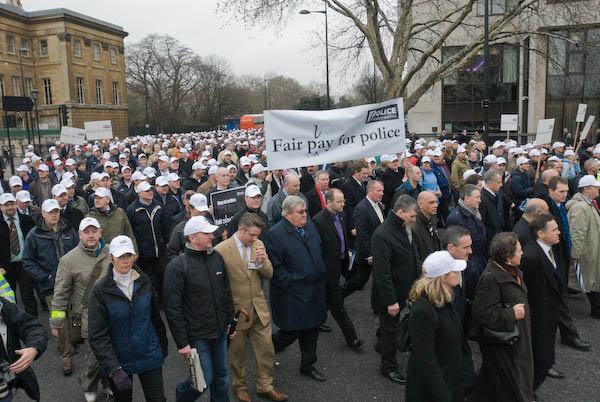
Along with what seemed like a thousand other photographers, I had decided that the police demonstration against their recent pay award was one that I had to cover. (We did wonder idly whether it was also being a good day out for burglars and other crimes across the country – though of course all those attending the demo were off-duty.) But although it showed the ability of the Police Federation to motivate officers on the issue of pay, bringing coachloads from over the country, it was a drab event on a drab day.
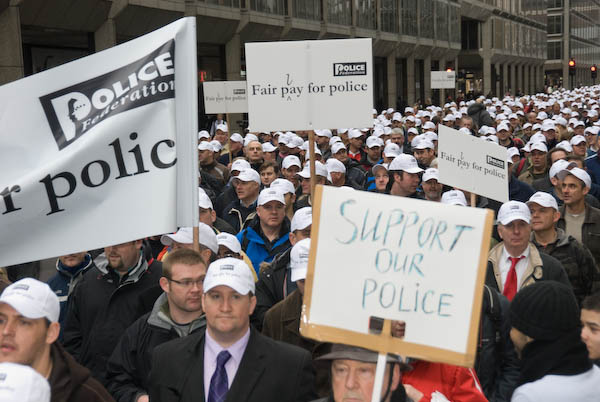
For perhaps the one and only time, I’ve absolutely no reason to think that the figure given by police of around 20,000 attending was seriously in error. It was a significant size, although rather smaller than many other demonstrations I’ve photographed in current years. I think a more normal police estimate would probably have put it at 10,000! [Or rather less.]
Of course it’s axiomatic that the public services get screwed by governments, although, along with the armed forces the police have over the years got a relatively easy ride compared to teachers and others, and I’m pleased to see a current trend to reverse that.
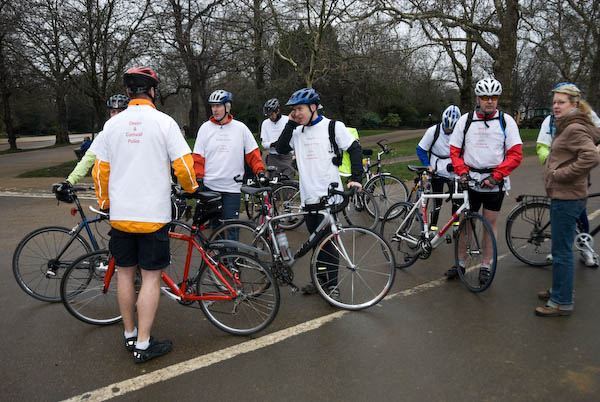
The ride by some Devon and Cornwall police from Exeter to be with the demonstration was one of the few point of interest – just a pity the demo wasn’t a couple of days later so they could have joined up with Critical Mass.
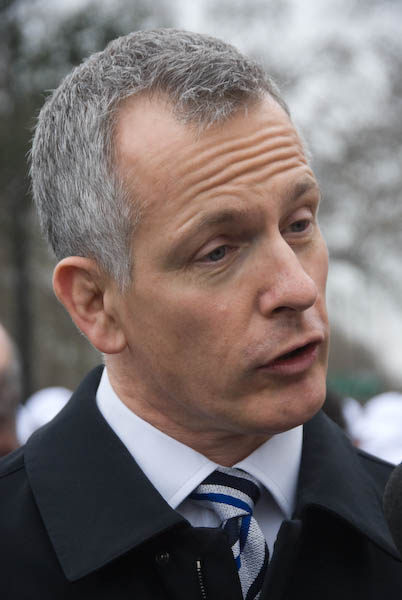
The Evening Standard gave the event the headline ‘BNP Chief On Police March‘, and yes, the the Barking & Dagenham councillor and BNP Mayoral candidate Richard Barnbrook was there – as too was the Liberal Democrat Mayoral candidate Brian Paddick. Unlike Barnbrook, Paddick came to see the press at the beginning of the march for interviews and photographs, although it seemed to me that none of the police wanted to talk to him, though many had been his former colleagues. It may be OK now to be gay and out in the police, but if you have liberal views best hide them under your helmet.
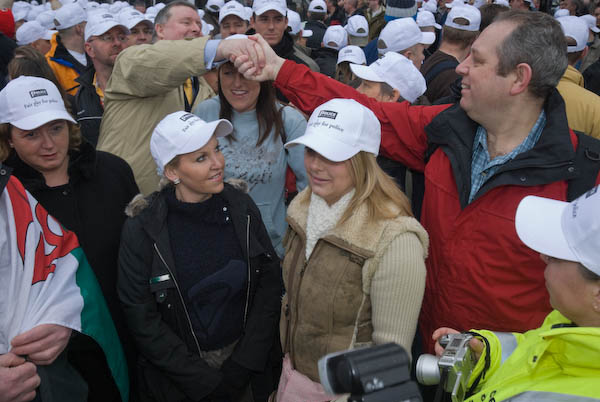
The press and photographers aren’t too popular with the police either, and at one point when I walked along with the demonstration I was jostled and sworn at, told to get out. But 99% of the demonstration was well-behaved and just rather dull. How many pictures can you take of a crowd in white baseball caps?
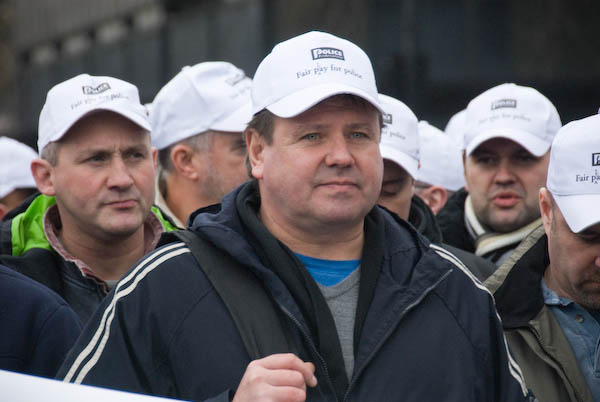
As a crowd it really stood out in London for the very few black faces it contained – certainly very few compared even to the proportion among those policing the event, let alone those watching as it went through the streets around Victoria station.
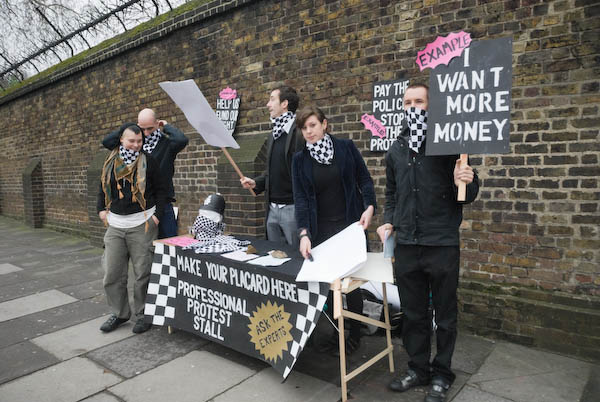
Fortunately a few left-wing groups turned up to give the police some advice and examples on demonstrating. The Space Hijackers had a Professional Protesters Stall at Hyde Park Corner, offering advice on making placards (and materials – although I don’t think anyone took up their offer), handing out leaflets on ‘Your Rights as a Protester’ as well as some suitable chants.
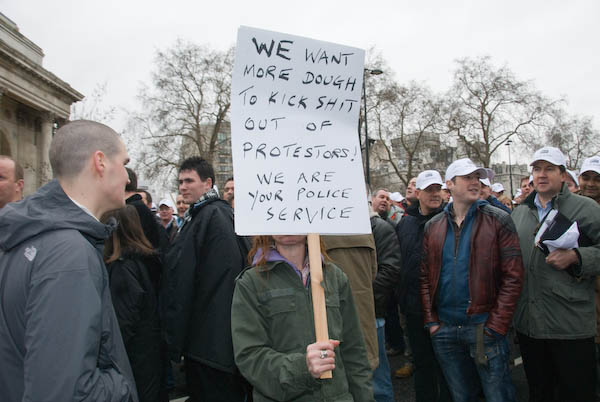
Their
What do we want?
More Money!
When do we want it?
Backdated from Spetember 2007!
did draw a few smiles and even the occasional cheer from those walking past, but most officers showed a total lack of humour, and there was quite a lot of abuse and offensive language directed at them.
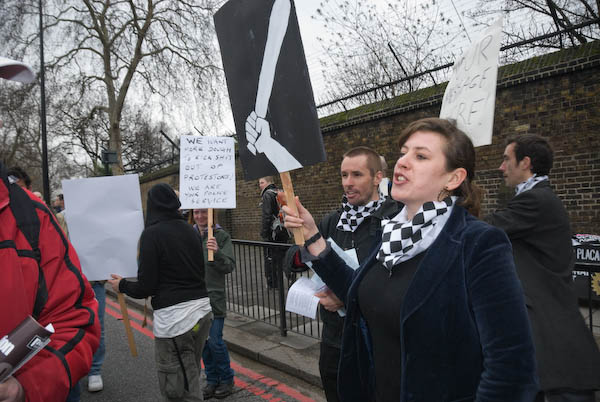
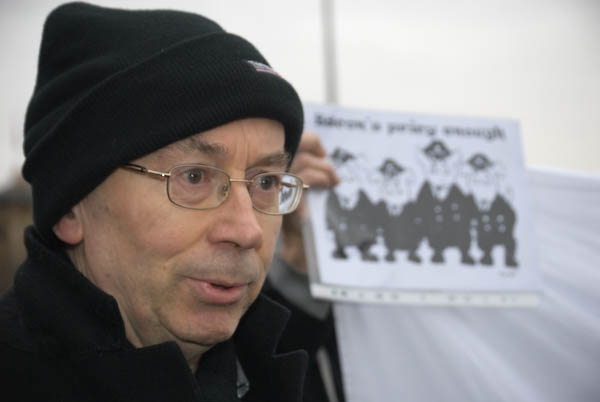
Earlier, a group of around twenty from ‘Class War’ had made their opposition clear at the start of the march; the slogan on one cartoon showing four pigs in police uniform reading ‘Bacon’s pricy enough’ [sic]. Another showed a member of the riot police being hit on the back of the head by a brick.
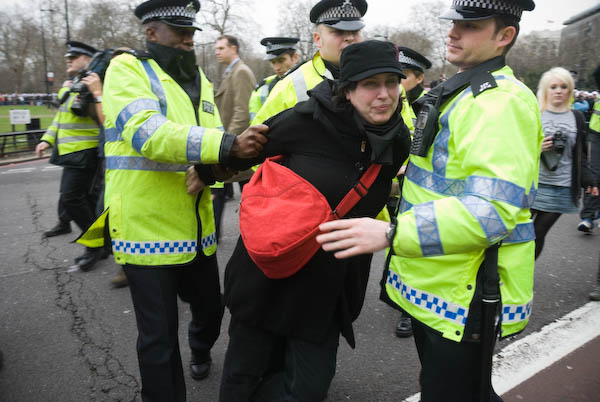
Some FITwatch protesters gave out leaflets and then attempted to block the march by standing on the roadway. Their protest held up the start of the march for almost half an hour until the police on duty for the day made a couple of arrests.

Surrounded by a media scrum, police tried hard to keep things relatively calm and made repeated attempts to the two to go back onto the pavement before making the arrest.
Police Honour Colleagues Killed on Duty
Police Memorial, The Mall
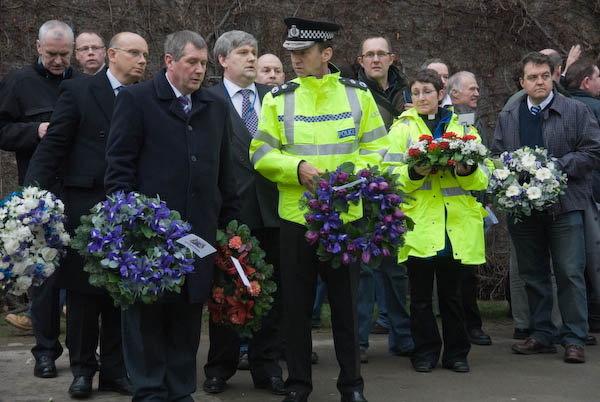
I think there are many, many problems with the police, some of which arise from our problems with governments, but in some respects ours are still some of the better police forces around the world. Despite often having minor issues with them while working – and having once been threatened with a conspiracy to fit me up that was serious enough for me to make a complaint (and receive some kind of apology) there are still times I’m pretty glad they are there. Particularly when they drove up and rescued me from a vigilante attack.
Police – like firemen – frequently put themselves at risk through their work, at times requiring considerable bravery; and several thousands have lost their lives serving us over the years. Although this is something that deserves public recognition, I was not sure it was entirely appropriate to make use of the National Police Memorial as a part of the demonstration over pay. But the ceremony that took place was certainly solemn and dignified and expressed deep feelings among those taking part.
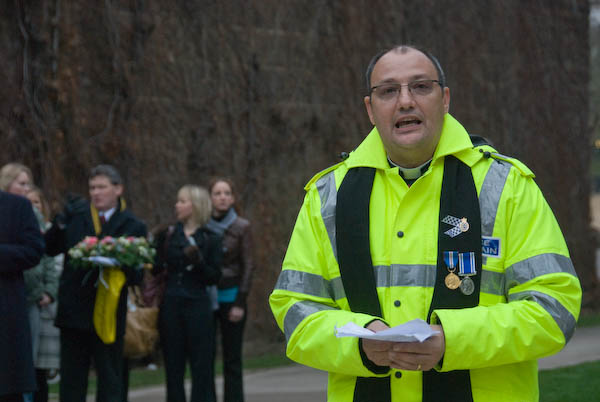
Officers and families from around the country made their way to the Police Memorial at the top of the Mall. There was a short service, including the laying of wreaths and a two minute silence, followed by the playing by two pipers.
Flickr – Facebook – My London Diary – Hull Photos – Lea Valley – Paris
London’s Industrial Heritage – London Photos
All photographs on this page are copyright © Peter Marshall.
Contact me to buy prints or licence to reproduce.
